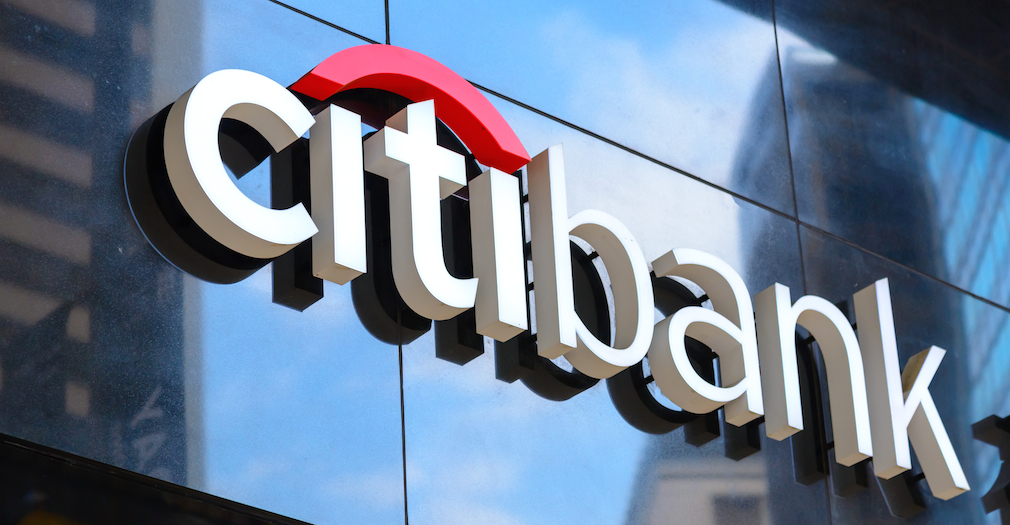Citigroup first-quarter earnings show that the bank is continuing to move further and further away from mortgages and into other lines of business.
According to information released Thursday by the bank, Citi’s residential first mortgage originations plummeted in the first quarter, dropping from $5.6 billion in the fourth quarter of 2016 to $3.8 billion in the first quarter of 2017.
That’s a drop of 32% in one quarter, and a drop of 31% from the same time period last year, when Citi originated $5.5 billion in first mortgages.
Citi’s mortgage servicing rights portfolio is also dwindling, as the bank continues to shed mortgage servicing rights.
Earlier this year, CitiMortgage announced that it agreed to a massive mortgage servicing rights deal with New Residential Investment and Nationstar Mortgage that will transfer the servicing rights for approximately 780,000 mortgages away from CitiMortgage.
That deal is part of a larger play for Citi to get out of the servicing business altogether.
In addition to selling the mortgage servicing rights on approximately $97 billion in unpaid principal balance to New Residential, Citi also earlier this year that it entered into a separate subservicing agreement with Cenlar that will effectively end Citi’s mortgage servicing business.
And Citi’s latest earnings show just how close Citi already is to exiting the servicing business.
According to Citi’s report, the bank claims $567 million in mortgage servicing rights as assets in the first quarter. That’s down a whopping 64% from the fourth quarter of 2016, when the bank claimed $1.564 billion in MSR assets.
So in just one quarter, Citi sold off nearly $1 billion in mortgage servicing rights.
While the bank’s mortgage portfolio is clearly down, the bank’s overall earnings didn’t take a hit.
The bank said Thursday that its net income for the first quarter of 2017 was $4.1 billion, or $1.35 per diluted share, on revenues of $18.1 billion. That’s up from the same time period last year, when the bank reported net income of $3.5 billion or $1.10 per diluted share, on revenues of $17.6 billion.
The bank said that its revenues increased 3% from the prior year period, “driven by growth in both the Institutional Clients Group and Global Consumer Banking, partially offset by lower revenues in Corporate/Other primarily due to the continued wind down of legacy assets.”
The bank also said that its net income of $4.1 billion increased 17%, “driven by the higher revenues and lower cost of credit.”
The lower revenue in the “Corporate/Other” segment of Citi’s business is partially mortgage related.
Here’s how Citi breaks it down (emphasis added by HousingWire):
Corporate/Other revenues of $1.2 billion decreased 40% from the prior year period, driven by legacy asset runoff and divestiture activity, as well as lower revenue from treasury-related hedging activity. The current quarter revenue included approximately $750 million of gains on asset sales which more than offset a roughly $300 million charge related to the previously announced exit of Citigroup’s U.S. mortgage servicing operations. As of the end of the first quarter 2017, Corporate/Other assets were $96 billion, 23% below the prior year period and 7% below the prior quarter, primarily reflecting the continued wind down of legacy assets.
Corporate/Other net income was $92 million, compared to $450 million in the prior year period, reflecting the lower revenue, partially offset by lower operating expenses and lower cost of credit. Corporate/Other operating expenses declined 11% to $1.1 billion, primarily driven by the wind-down of legacy assets, partially offset by approximately $100 million of episodic expenses related to the exit of Citigroup’s U.S. mortgage servicing operations.
Corporate/Other cost of credit was $52 million compared to $170 million in the prior year period. Net credit losses declined 43% to $81 million, reflecting the impact of ongoing divestiture activity as well as continued improvement in the North America mortgage portfolio, and the provision for benefits and claims declined by $59 million to $1 million reflecting lower insurance-related assets. The net loan loss reserve release was largely unchanged.
While the mortgage revenue is down, Citi’s revenue in other areas is up.
Here’s how Citi breaks that down (emphasis again added by HousingWire):
North America Global Consumer Banking revenues of $4.9 billion increased 2%, with higher revenues in Citi-branded cards partially offset by declines in retail services and retail banking. Citi-branded cards revenues of $2.1 billion increased 13%, reflecting the addition of the Costco portfolio and modest organic growth, offset by the impact of day count. Citi retail services revenues of $1.6 billion were down 5% driven by the absence of gains on the sales of two portfolios sold in first quarter 2016. Retail banking revenues declined 3% mainly due to lower mortgage revenues partially offset by growth in average loans, deposits and assets under management.
“The momentum we saw across many of our businesses towards the end of last year carried into the first quarter, resulting in significantly better overall performance than a year ago,” Citi CEO Michael Corbat said.
“Revenues increased in both our consumer and institutional lines of business, most notably in areas where we have been investing such as Equities, U.S. Cards and Mexico,” Corbat continued.
“We grew loans and deposits and achieved an efficiency ratio of just under 58%, an ROA of 91bps and a ROTCE ex-DTA of over 10%, showing good progress towards achieving our near-term financial targets,” Corbat added.
“Through our earnings and the utilization of $800 million in Deferred Tax Assets, we generated $5.5 billion of total regulatory capital before returning $2.2 billion to our shareholders,” Corbat concluded. “Our CET 1 Capital ratio rose to 12.8% and we could not be more committed to continuing to increase the capital we return to our shareholders.”
(Image above courtesy of TungCheung / Shutterstock.com)






